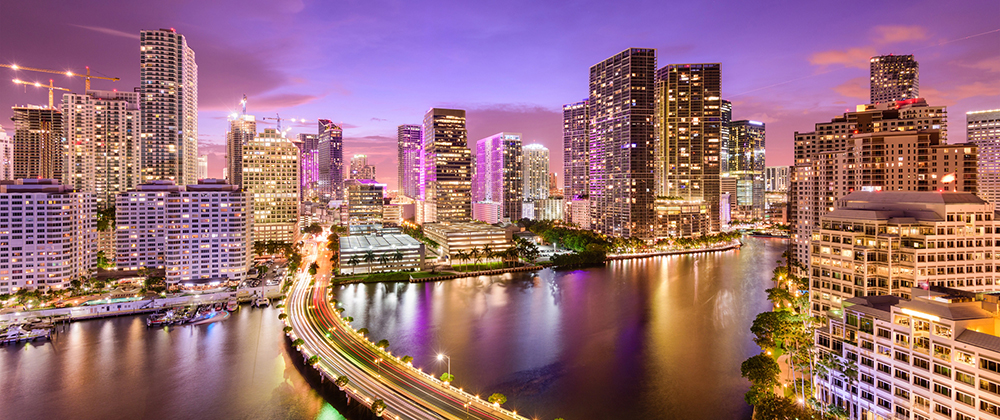Learning About the Possible Immigration Parole Program
The U.S. government has been grappling with how to handle the surge of migrants at the U.S.-Mexico border, which has only increased as the potential end to Title 42 looms. A recent proposal that would add new parole programs for migrants from Cuba, Nicaragua, and Haiti who are already present inside of the country might offer some relief to undocumented people from those countries who are living in Miami, Florida. Here is some information about the proposed programs and what they could mean to immigrants and their families from the immigration attorneys at Pozo Goldstein.
Surge of Migrants at the Border
The Biden administration is trying to find ways to limit the number of people from Nicaragua, Cuba, and Haiti who are claiming asylum at the southern border while simultaneously opening new avenues for immigration. Title 42, the rule that allowed immigration officials to turn migrants back at the border because of COVID-19 fears, is scheduled to end. It was originally supposed to end on Dec. 20, but U.S. Supreme Court Justice John Roberts placed a temporary stay on the end of the program. However, Title 42 will not last for much longer. This means the government needs to do something to tamp down the surge of migrants.
Possible New Parole Programs
The primary focus of the administration is on starting new parole programs for people from Cuba, Nicaragua, and Haiti that would be similar to the parole program that was initiated earlier in 2022 for Venezuelans. Under the Venezuelan parole program that was announced in October, Venezuelans who are already in the U.S. can apply for U.S. residency from within the country. At the same time, the U.S. government agreed with Mexico that U.S. immigration authorities at the border can return migrants from Venezuela who are entering the U.S. without legal authorization. Since the initiation of the Venezuelan parole program, the U.S. Department of Homeland Security (DHS) has reported a drop of nearly 80% in new encounters with Venezuelan migrants at the border.
Starting new parole programs for people from Cuba, Nicaragua, and Haiti would require time for the government to negotiate agreements with Mexico, more staff placed in the U.S. embassies in each of those countries, and increased visa processing in those nations.
Opposition to the Parole Programs
Multiple organizations and parties have expressed opposition to the Venezuelan parole program, including immigration advocates, Senator Bob Menendez, who chairs the Senate Foreign Relations Committee, and the Venezuelan opposition. Under the Venezuelan program, the number of Venezuelans allowed to migrate to the U.S. each year would be limited to 24,000. They would need to have U.S. sponsors, be fully vaccinated, pass biometric screens, and meet other requirements. Those who don’t have authorization to enter the U.S. would be returned to Mexico.
Venezuelans who are approved in their home country will receive authorization to fly to the U.S. to a port of entry inside of the U.S. so that less pressure is placed on the border. After the authorized immigrants arrive, they are eligible to apply for employment authorization documents so that they can live and work in the U.S.
While reports that the government is considering adding similar parole programs for migrants from Cuba, Nicaragua, and Haiti have swirled, the administration has not confirmed them. Hundreds of thousands of people from each of those countries have attempted to cross the border during the last fiscal year, which ended in September. This was a substantial increase over the number who attempted to cross in the previous fiscal year.
Immigration Parole Program
Recently, several officials from the Biden administration traveled to Cuba to talk about ways to reduce mass Cuban migration. The U.S. Embassy in the nation has said it will restart processing immigrant visas in 2023, following several years of limited services. The U.S. government has already restarted a family reunification parole program for Cubans. Before the newly expanded Cuban parole program could be successful, however, there would need to be a substantial increase in staff in the embassy, and the Cuban government would also need to agree to that.
Opponents of the proposed programs point to the fact that limiting the number of migrants coming from Cuba, Nicaragua, and Haiti would not be a good approach because migration is caused by substantial upheaval. The current surge in migration should instead be viewed as a humanitarian crisis that should instead be dealt with regionally to address the underlying reasons for the mass migration.
Contact a Miami Immigration Lawyer
If you are a family member of someone from Venezuela, Cuba, Nicaragua, or Haiti and want to sponsor your loved one to come to the U.S., you should contact an experienced Miami immigration lawyer at Pozo Goldstein. Contact us today at (305) 856-0400.




